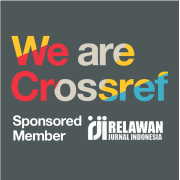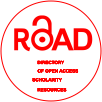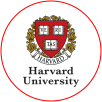Community Empowerment Program Model In Creative Economy Development In Padang Pariaman Regency
Abstract
Background. The development of the creative economy of a community is related to the model of program development patterns carried out by a region.
Purpose. The objectives to be achieved in this study based on the formulation of the problem above are: 1) To find out the Community Empowerment Program Model in Padang Pariaman Regency (One Event Nagari Activity Study); 2) To find out the Development of Creative Economy in Padang Pariaman Regency (Study of Nagari One Event Activities).
Method. This research uses qualitative methods with data collection techniques in the form of in-depth interviews with the community, traditional leaders, implementers of creative economic activities, youth and the public who take part in activities carried out in nagari..
Results. The results of the study show that the program model for empowerment that is in accordance with current developments must start from the ideas and thoughts of the community according to the needs and capabilities of the community. The "mambasuik dari bumi" program model directs people to think creatively and innovatively to carry out activities that are able to run businesses according to their abilities and develop the community's economyKeywords
Full Text:
PDFReferences
Abidin, Z., Handayani, W., Zaky, E. A., & Faturrahman, A. D. (2022). Perceived risk and attitude’s mediating role between tourism knowledge and visit intention during the COVID-19 pandemic: implementation for coastal-ecotourism management. Heliyon, 8(10). https://doi.org/10.1016/j.heliyon.2022.e10724
Afrian, N., Widayati, D., Setyorini, D., Akmalafrizalgmailcom, E., Ilmu, J., Masyarakat, K., Health, P., Puskesmas, M., Rumah, D. A. N., Wenni Ardianti, Buchari Lapau, O. D., Ekel, Y. L., Kepel, B. J., Tulung, M., นคเรศ รังควัต., Iv, B. A. B., Kerja, W., Sidomulyo, P., Pekanbaru, K., Chelvam, R., … Kesehatan, I. (2017). No Titleبیبیب. ثبثبثب, 1(1), 1–10. https://doi.org/10.1037/0022-3514.51.6.1173
Asy’ari, R., Dienaputra, R. D., Nugraha, A., Tahir, R., Rakhman, C. U., & Putra, R. R. (2021). Kajian Konsep Ekowisata Berbasis Masyarakat Dalam Menunjang Pengembangan Pariwisata : Sebuah Studi Literatur. Pariwisata Budaya: Jurnal Ilmiah Agama Dan Budaya, 6(1), 9. https://doi.org/10.25078/pba.v6i1.1969
Boedi, S., Si, M., Nidn, C. A., Kadir, D. A., Si, M., Nidn, C. A., Dana, S., & Mandiri, D. (2021). Pentingnya Pemetaan Potensi Desa sebagai Modal BUMDes Dalam Upaya Meningkatkan Perekonomian Desa Sumber Makmur Kecamatan Takisiung Kabupaten Tanah Laut Provinsi Kalimantan Selatan. In Eprints.Stiei-Kayutangi-Bjm.Ac.Id.
Dakwah, J., & Desa, P. M. (2022). Jurnal at-taghyir. 4, 191–216.
Faturrahman, M. (2016). Model-Model Perilaku Pencarian Informasi. JIPI (Jurnal Ilmu Perpustakaan Dan Informasi), 1(1), 74–91. http://jurnal.uinsu.ac.id/index.php /jipi/article/view/101/66
Gorontalo, P. (n.d.). Pemetaan Potensi Ekowisata.
Koto, K. V. I. I., Pariaman, K. P., Rianto, S., Suryani, A. I., Irma, S. A., Kajian, S., Sosial, K., Masyarakat, E., Nagari, D., Sariak, S., Vii, K., Padang, K., Jurnal, P., & Geografi, I. (2017). Jurnal Jurnal Spasial. 4, 17–22.
Maharani, I. (2016). “ Analisis Kelayakan Potensi Ekowisata.
Mattiro, S., Nasrullah, N., & P, R. (2021). Potensi Ekowisata Pesisir Berbasis Kearifan Lokal. Jurnal Ilmiah Mandala Education, 7(2), 220–225. https://doi.org/10.58258/jime.v7i2.1996
Mensari, R. D., & Dzikra, A. (2017). Islam dan Lembaga Keuangan Syariah. Journal of Chemical Information and Modeling, 3(1), 239–256.
Muhtarom, A. (2018). Participation Action Research dalam Membangun Kesadaran. Dimas, 18(2), 259–278.
Muluk, M. R. K. (2020). Pemetaan Potensi Pariwisata Berbasis Komunitas Melalui Eksplorasi Keunikan Seribu Pantai di Malang Selatan. Engagement: Jurnal Pengabdian Kepada Masyarakat, 4(2), 309–326. https://doi.org/10.29062/engagement.v4i2.93
Nicol, D. J., & Macfarlane-Dick, D. (2004). Rethinking formative assessment in HE: a theoretical model and seven principles of good feedback practice. Enhancing Student Learning Though Effective Formative Feedback, i, 3–14. http://www.heacademy.ac.uk/resources/detail/ resource_database/id353_effective_formative_feedback_juwah_etal
Noorhayati Sutisno, A., & idayat Afendi, A. H. (2018). Penerapan Konsep Edu-Ekowisata Sebagai Media Pendidikan Karakter Berbasis Lingkungan. Jurnal Ecolab, 12(1), 1–11. https://doi.org/10.20886/jklh.2018.2.1.1-11
Putro, M. Z. A. E., & Kustini. (2022). Ecotourism of Cireundeu and Basic Sundanese’ Way of Life. Jurnal Manajemen Hutan Tropika, 28(2), 141–149. https://doi.org/10.7226/jtfm.28.2.141
Rohman, A. S., & Sukaesih, S. (2018). Transformasi Perpustakaan Desa Untuk Pemberdayaan Masyarakat: Studi Kasus Di Desa Margamukti - Pangalengan Bandung. Jurnal Perpustakaan Pertanian, 26(2), 47. https://doi.org/10.21082/jpp.v26n2.2017.p47-54
Rohmawati, A. (2016). Implementasi Makerspace di Perpustakaan Kota Yogyakarta. Khizanah Al-Hikmah : Jurnal Ilmu Perpustakaan, Informasi, Dan Kearsipan, 4(2), 163–167. https://doi.org/10.24252/kah.v4i26
Sumantri, M. S. (2015). the Relationship Between Students Attitude To Health Education and Learning Environment By Learning Outcomes of Health Education in the Fifth Degree Elementary School. Edutech, 14(1), 35. https://doi.org/10.17509/edutech.v14i1.945
Suparno, S., Munzir, A., & Aryanti, D. (2019). Pemetaan Partisipatif Potensi Wisata, Di Nagari Sungai Pinang, Kabupaten Pesisir Selatan, Provinsi Sumatera Barat. Jurnal Vokasi, 3(2), 66. https://doi.org/10.30811/vokasi.v3i2.1277
Wartha, I. B. N. (2016). Manfaat Penting “Benda Cagar Budaya” Sebagai Peninggalan Sejarah/Arkeologi Untuk Kepentingan Agama, Sosial Budaya, Sosial Ekonomi, Pendidikan dan Ilmu Pengetahuan. Jurnal Santiaji Pendidikan, 6, 189–196.
Yanto, A., & Erwina, W. (2017). Tren Perkembangan Penelitian tentang Literasi Informasi pada Penelitian Mahasiswa Ilmu Perpustakaan dan Informasi Universitas Padjadjaran. Jurnal Ilmu Perpustakaan Dan Informasi (UIN Sumatera Utara), 2(1), 11–20.
Yuliani, T. (2018). the Influence of the Quality of Service To Library Visitors Satisfaction. Jurnal Al-Fuad. https://www.academia.edu/download/59231168/5._Tri_Yuliani_OK20190512-113862-gcdbxn.pdf
DOI: http://dx.doi.org/10.31958/imara.v7i2.10795
Refbacks
- There are currently no refbacks.
Copyright (c) 2023 Tri Yuliani, Irwandi Irwandi, Novi Budiman, Andri Maijar

This work is licensed under a Creative Commons Attribution-NonCommercial 4.0 International License.
INDEX BY:
Journal Imara distribute under a Creative Commons Attribution-NonCommercial 4.0 International License


















